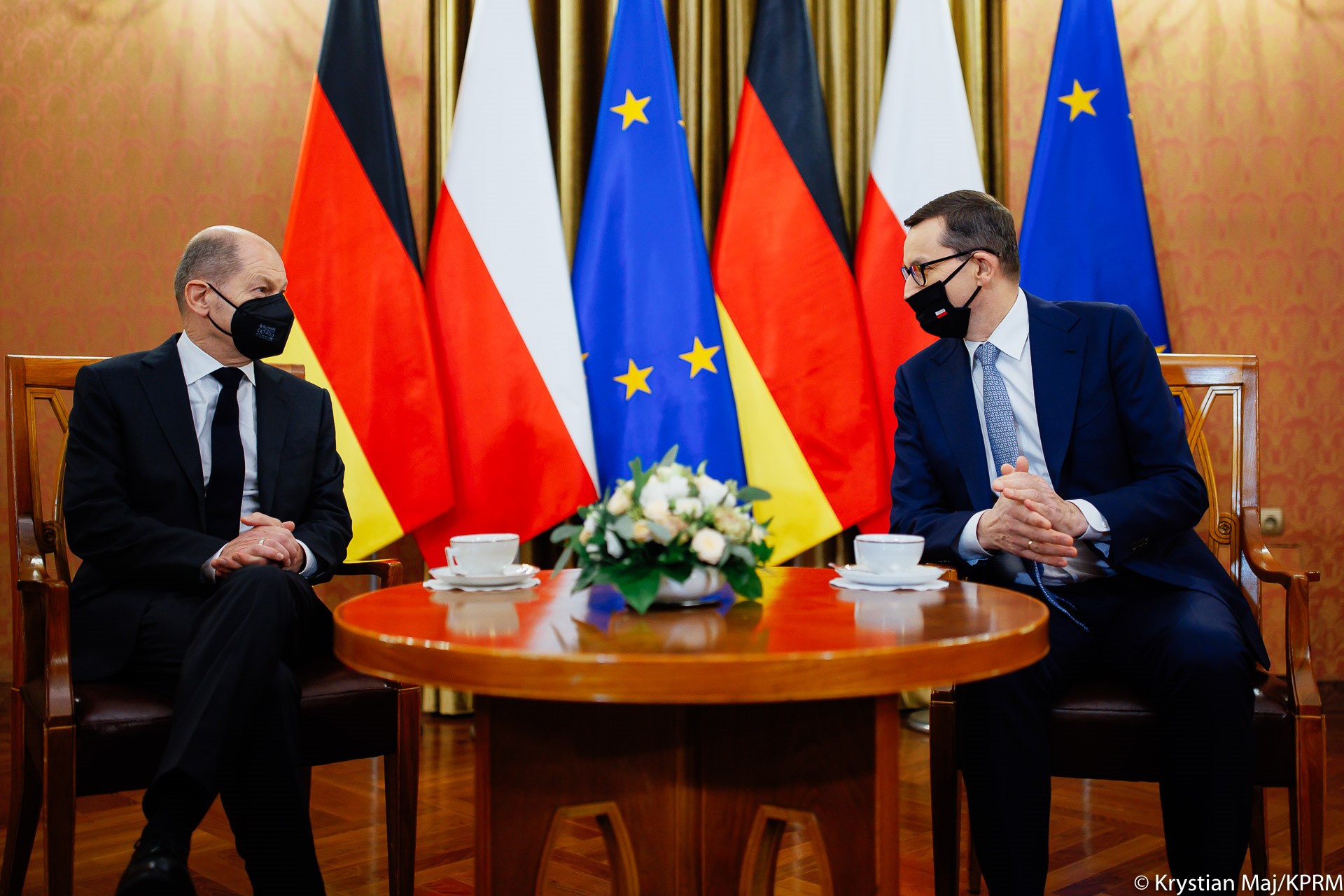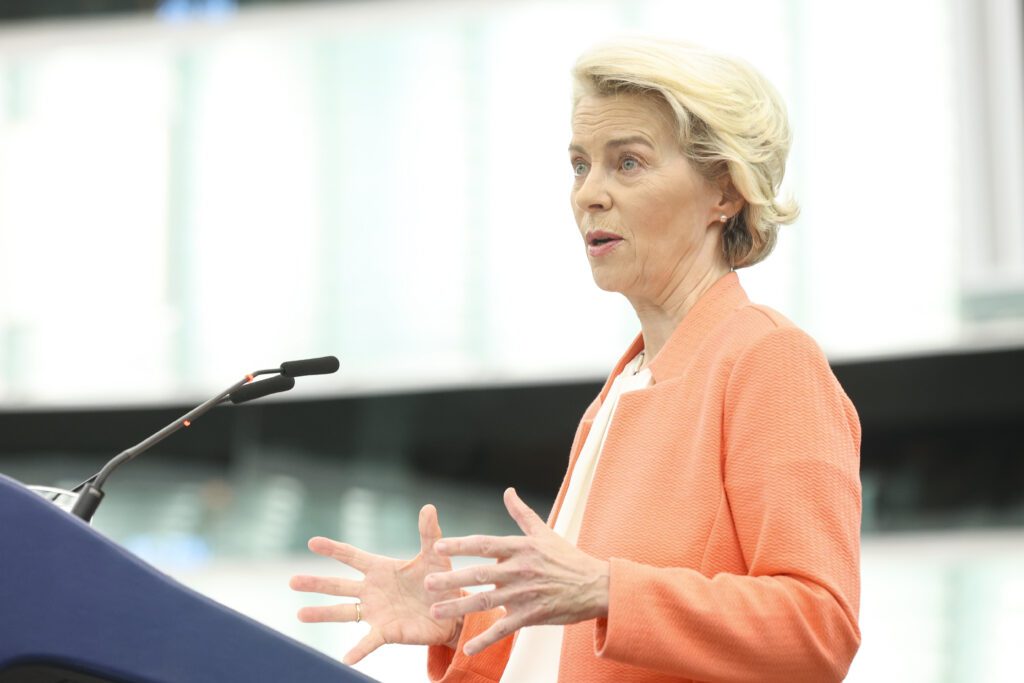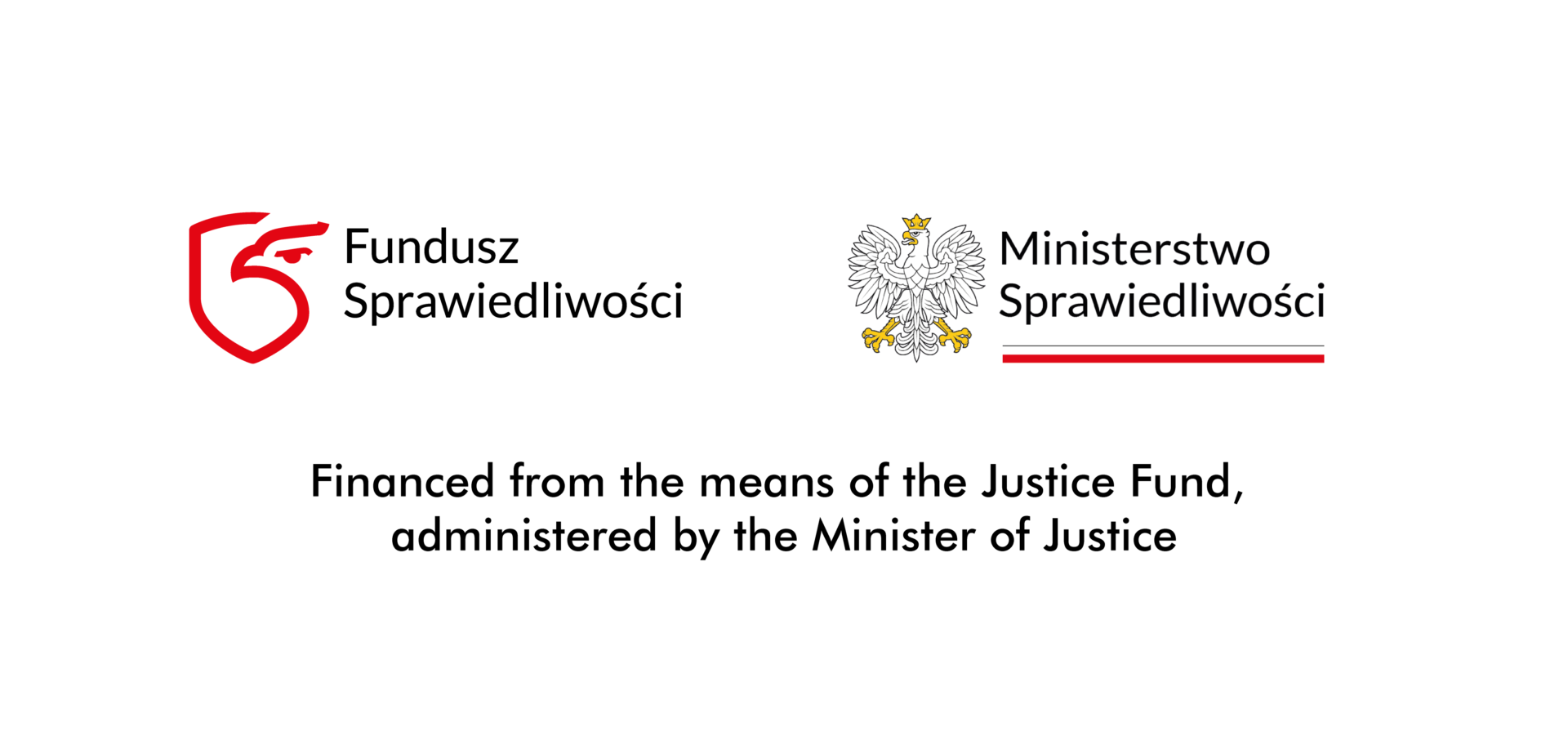The real causes of Poland’s icy relations with Germany

The German press makes no secret of the fact that Germany is betting almost everything on Donald Tusk’s victory in the fall elections in Poland. Social Democratic governments in Germany very often take a much more critical stance towards Poland than Christian Democratic governments and Chancellor Scholz has a policy of exploiting Germany’s advantage in every possible field.
Piotr Semka
Polish-German relations are at their most cold in perhaps seven years. This is an achievement of sorts, given that during the two periods when PiS was in power – 2005-2007 and 2015-2023 – Germany’s attitude toward Poland seemed very cool. Despite two terms of PiS rule, the German political class cannot actually accept the presence of Jaroslaw Kaczynski’s party in power. Germany’s pushing through the EU’s migration solidarity pact and European Commission head Ursula von der Leyen’s decision to block EU support for farmers in Eastern Europe further complicate Polish-German relations. What does the current map of the fields of controversy look like?
Take in refugees or pay up!
Forcing through the migration solidarity pact at the EU level is a good example of the efficiency of German diplomacy. It was an initiative of countries that are outside the EU’s external borders, and at the same time countries that, because of their high welfare, attract a large share of migrants making their way to Europe from Asia and the Middle East. These include Germany, Austria, and Sweden, for example. In the case of all these countries, their leaders pushed through the project to appease public opinion in their countries exasperated by the ever-increasing numbers of arriving immigrants.
German diplomacy, in forming a majority coalition to push the project through, has very skillfully exploited the desperation of Italy and Greece, which are being inundated by the wave of migrants arriving across the Mediterranean. In particular, the way Chancellor Olaf Scholz induced Italian Prime Minister Giorgia Meloni into accepting the EU Migrant Pact was exceptionally clever.
The point is that the Migrant Pact increases the European Commission’s control over the forced distribution of migrants and in the long run will diminish the sovereignty of individual countries over their borders. The Italians, who are under tremendous pressure from some EU countries not to use such push-backs against vessels collecting migrants at sea, should be theoretically aware that increasing power in Brussels over the movement of refugees is to embark on a dangerous path for Italy. Yet the desire to please voters, who are desperate for some kind of help from Europe in defending themselves from the flood of refugees from the Mediterranean, eventually led Prime Minister Meloni to back the pact. Chancellor Scholz’s promise to back Italy in its efforts to get European Commission support for a couple of financial projects important to Italy may also have played a role.
In Poland, the question is very often asked why, when introducing the principle of financial penalties for countries such as Poland or Hungary if they refuse to take in their quotas of refugees, no consideration is given to Poland’s support for Ukraine and its welcoming of some 1.3 million Ukrainians after Russia’s aggression. The thing is that Germany, which has taken more or less similar, and perhaps slightly larger, numbers of refugees from Ukraine than Poland, assumes that taking in immigrants is the responsibility of all EU countries.
The problem is that Germany is unable to find an effective antidote to a situation in which only 16% of the immigrants whose asylum applications have been rejected really return to their countries. Therein lies the sham of the Migration Pact. It does not focus on sealing the EU’s external borders, but on distributing the sums of refugees in times of crisis while making unrealistic announcements about streamlining the deportation of migrants.
The German success in reshaping the immigration solidarity pact was all the more effective on the part of German diplomats because it demonstrated a persistent lack of coordination among the Visegrad countries. While it seemed that opposition to immigration was the V4 group’s only strong glue – the Czech Republic succumbed to promises that the European Commission would take a sympathetic look at their request to exempt their country from the refugee distribution system by virtue of its merits in accepting refugees from Ukraine. Slovakia, which has a purely technical government awaiting new elections, abstained and only Poland and Hungary were left in the position of staunch opponents of the emigration solidarity pact.
In addition, in the German press, comments on the pact tended to focus on outrage at Budapest’s and Warsaw’s lack of solidarity in the face of the immigration problem of the EU’s richest countries. And the problem of the influx of migrants to Europe has not diminished at all. True, Poland has effectively blocked its border with Belarus, but the swarm of refugees, calculated at about 8,000, which is forcing its way across the Polish-German border, is overwhelmingly made of immigrants who, piloted by the immigration mafia, are taking the route through Serbia, Hungary, the Czech Republic, and Slovakia. The journey through Poland to the German border is the final stage of their journey from the Balkans.
According to the observations of Polish border guards, the Germans have actually, albeit unofficially, begun to introduce controls on the routes leading from Poland to Germany and are trying to catch migrants. If they are able to prove that the first EU border a refugee crossed was into Poland, they send the asylum applicant back to our country. This is done by the authorities of a country whose media despise Poland for effectively protecting its border with Belarus and stopping the stream of refugees sent by Lukashenko’s security services.
These double standards applied by the Germans to their own security and to the measures used by Poland to stop the “refugee weapon” used by Minsk are poisoning Polish-German relations.

Not a penny for Poland
The Polish side is convinced that Germany has a very strong influence on the European Commission’s decisions. This is due, for example, to the fact that the head of the Commission, Ursula von der Leyen, is a politician of German origin. It is hardly surprising, then, that the political practice of the Commission blocking Next Generation EU funds for Poland, and, as it turns out, other funds to which Poland is entitled, is associated with German politics in the minds of Poles.
Last June, Chairwoman von der Leyen personally blocked the payment of €100 million to farmers from five eastern European countries bordering Ukraine for losses caused by excessive imports of Ukrainian grain. As European Commission spokeswoman Marian Garcia Ferrer explained, “There are many challenges and unresolved issues, so we have not been able to approve the support package, but we are continuing discussions on how to solve the problem and the bottlenecks we are experiencing to ensure the free transit of Ukrainian goods.”
Ms. von der Leyen was also expected to disagree, without giving a reason, on a €330 million aid package for other EU countries, intended to cover drought losses, among other things. From the point of view of the government in Warsaw, this looked like a setback for Mateusz Morawiecki’s cabinet during the crucial months leading up to the parliamentary elections in October this year.
Poland has been the most outspoken critic of Chancellor Olaf Scholz’s projects to eliminate the member states’ right of veto at the EU level and continue the EU’s unification policy. Again on this issue, Berlin is taking advantage of the weakening cohesion of the Visegrad Group. The paths of Hungary and Poland have diverged because of Budapest’s policy of distancing itself from Ukraine and maintaining correct relations with Moscow. Slovakia is in a political crisis and lacks any strong and articulate leader, and the Czech Republic has returned to a policy of aligning with Germany’s wishes.
Again, the best example of the submissiveness of the coalition of the Civic Democratic Party (ODS), Mayors and Independents, and the Pirate Party is the Czech support for the immigration solidarity pact. Under the government of current Prime Minister Petr Fiala’s predecessor, Andrej Babiš, immigration issues were put extremely harshly by Babiš, theoretically a Social Democrat, against the European Union. Now, apart from the change of government, the policy of tilting toward Berlin has been taken up by the new Czech president Petr Pavel.
Relations between Poland and the European Commission are further complicated by Prime Minister Morawiecki’s disappointment at being misled by Ursula von der Leyen. The head of the commission declared that the issue of disbursements for the National Reconstruction Plan would be based solely on the criterion of verifying that the funds were not prone to corruption. Meanwhile, the disbursement of Next Generation EU funds was later halted due to the European Commission’s demand that Polish judicial reforms be abandoned.

“The end of your five minutes”
When former German Ambassador to Poland Rolf Nikel warned on NTV on January 30, 2023, that Poland’s “five minutes” might be coming to an end, many observers saw it as a demonstration of Berlin’s irritation with Polish criticism of German policy toward Russia. Today, German politicians are sending behind-the-scenes signals that German diplomacy can get along with the Biden administration and regain its status as a major force on which the US can rely in its security policy in Europe. It is only in this context that one can understand the harsh criticism targeting Poland on the part of some German commentators who claim that Poland has wasted its “five minutes of glory” that stemmed from helping Ukraine in the first phase of the conflict with Russia.
Obviously, the accusations of German commentators against Poland are very unfair. They assume that the Polish Law and Justice government, under the influence of praise for welcoming immigrants and military aid to Ukraine, should suddenly accept all the European Commission’s demands regarding the shape of the judiciary in Poland. Either way, the continued dispute over justice reform was a good pretext for Germany to take revenge for Polish criticism of Berlin’s policy of long-standing support for Putin.
And one can venture to say that Chancellor Scholz must have recommended a tougher tone towards Poland. This behavior was exemplified by the polemics of the German ambassador to Warsaw, Thomas Bagger, who asked Polish Defense Minister Mariusz Blaszczak on Twitter how many billions of zlotys Poland was transferring to Moscow in exchange for Russian energy. It is also no coincidence that Chancellor Scholz’s last visit to Warsaw was in December 2021. When Morawiecki visited Berlin in February 2022, Scholz did everything possible to avoid meeting his Polish colleague.
Moreover, Germany refuses to discuss reparations to Poland for war losses. German politicians spanning from the CDU to the Greens reiterate in one tone that the reparations issue raised by Warsaw has no basis in fact, and is only a way for the PiS government to spread anti-German propaganda. Berlin also consistently stifles all initiatives of Polish diplomacy. When Warsaw recently proposed that the next Weimar Triangle summit be held in Kyiv, Germany and France pushed through Paris as the venue.
Germany is also extremely allergic to the proposal of any meetings in the Poland-Germany-Ukraine triangle. Chancellor Scholz makes sure that Germany’s talks with President Volodymyr Zelenski are held directly.
In terms of historical policy, the only recent positive was the visit of the German government’s plenipotentiary for culture, Claudia Roth of the Green Party, during which the issue of consultations on the implementation of the project for a monument dedicated to Polish victims in World War II was taken up anew. However, this project, inaugurated in 2017, is in fact developing at a snail’s pace. So slow, in fact, that the issue no longer evokes any emotions in Poland. Neither good nor bad. A minor achievement was Claudia Roth’s promise to set up a special working group of representatives of both governments to deal with the restitution of Polish works of art that were looted during World War II and still remain in German hands.
Polish-German relations are also affected by relatively minor issues. For example, Minister Przemyslaw Czarnek’s reduction of the number of hours of German language instruction in German minority schools in Poland. On the German side, there was the unfortunate initiative of the German Historical Institute in Warsaw to invite historian Jan Grabowski to give a lecture in which he would assess the ability of Poles to deal with their share of responsibility in the Holocaust. The quarrel that broke up the meeting, instigated by MP Grzegorz Braun from the very right-wing Confederation party, further raised comments critical of Poland in the German press.
Berlin waiting for the Polish elections
It is a puzzling point that Social Democratic governments very often present a much more critical stance towards Poland than Christian Democratic governments. At times, Chancellor Scholz demonstrates Berlin’s aspirations for the unification of the European Union in a highly articulate manner. Hopes sometimes expressed in Poland that Green Party politicians supposedly have a moderating effect on Germany’s policy toward its eastern neighbor have not been fulfilled. The German coalition is being ruled with a firm hand by Olaf Scholz. His policy is to exploit the German advantage in every possible field. And the German press makes no secret of the fact that Germany is betting almost everything on Donald Tusk’s victory in the fall elections in Poland.
All the more so because the Polish opposition is unable to address the causes of the Polish-German conflicts in any critical way. This means that Donald Tusk’s Civic Platform, as well as Poland 2050, PSL, and the Left, tacitly confirm the thesis that tensions between Warsaw and Berlin are solely the fault of the PiS government. International analyst Dr. Michal Kuz summed up the current policy of the rainbow coalition government toward Poland in very emphatic words: “The level of vindictiveness (of the Germans): level hard (your five minutes are over, Biden is with us, not a penny until the elections). One can already see that such a policy of ‘half hegemon’ affects not only Poland, and that in the long run it rules out a deeper unification of the European Union.”
This diagnosis is undoubtedly accurate from the Polish point of view. But the German point of view is one of relations with a weaker partner, a country where at least half of the political scene is ready to accept the German rationale. Such a convenient state of affairs for Berlin is certainly a strong incentive to pursue a policy of turning the screw on Poland at least until the Parliamentary elections on October 15.
This article was published in Polish in the Do Rzeczy weekly in June 2023.




